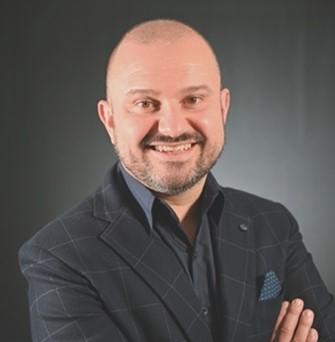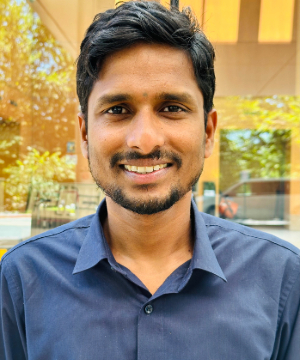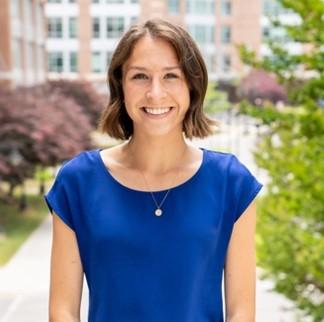Image

Antonio Ivano Triggiani, Ph.D.
Research Scientist
I hold a bachelor's degree in Electronic Engineering and a master's in Electronic Engineering applied to biomedicine. I received a Ph.D. in Neuroscience from the University of Foggia (Italy), collaborating closely with the University of Rome "Sapienza." Throughout my post-doctoral research, I continued my work with these institutions, focusing extensively on the brain's electrical activity and the correlates of high cognitive functions such as vigilance, awareness, and attention.
During my time in Italy, my research involved utilizing EEG to study the brain activity of diverse populations, including athletes, patients with Alzheimer's Disease, and those affected by neurodegenerative conditions. In 2019, I joined the Human Motor Control Section at NIH, dedicating over three years to a project centered around the intriguing domains of free will and consciousness.
In 2022, I joined the Neurophysiology of Epilepsy unit (NEU). Here, I am actively involved in studying interictal spikes. My main research uses advanced techniques like Magnetoencephalography (MEG) combined with MRI to reconstruct the sources of abnormal activity underlying epileptiform events, contributing to a deeper understanding of epilepsy, and possibly paving the way for innovative diagnostic and therapeutic approaches.
Image

Prabhakararao Eedara
Postdoctoral fellow (visiting)
Prabhakar grew up in Andhra Pradesh, India, earned his Bachelor’s degree in Electronics and Communication Engineering (ECE) from MIC college of Technology, India, and his Master’s in ECE from Indian Institute of Technology Bhubaneswar, India. He completed his Ph.D. in Electrical Engineering at Indian Institute of Technology Guwahati, India, under the supervision of Professor Samarendra Dandapat. His doctoral research focused on developing data-driven signal processing and machine/deep learning-enabled computational methods for identifying healthy controls and disease subjects using multi-channel biomedical time series data. Additionally, he worked on computational methods for disease localization and severity assessment. His current research focuses on investigating the use of interictal Magnetoencephalography (MEG) combined with machine learning to localize epileptogenic zone in patients with drug-resistant epilepsy.
Image

Elena Hayday
Post-bac IRTA
Elena received her bachelor’s degree in Neuroscience from University of Minnesota, where she studied the neuroanatomy of white matter tracts in non-human primates. She additionally completed an internship at the Fralin Biomedical Research Institute at Virginia Tech studying the effects of PI3K subunit hyperactivity on melanoma patient outcomes. Her current work focuses on interictal epileptiform discharge localization in MEG using both equivalent current dipole and distributed source models. Elena is currently applying for graduate programs in neuroscience to continue her research career.
Image

Rahul Akkem
Post-bac IRTA
I grew up in Albany, NY and graduated from Drexel University with a B.S. in Biomedical Engineering and a minor in Math. My current research focuses on exploring the genetic makeup of surgically resected tissue from patients with epilepsy. I hope to continue doing research in genetics in the future as an aspiring physician. Outside of the lab you’ll find me biking, hiking, or climbing in Rock Creek Park.
Image

Kayla Togneri
Post-bac IRTA
I am currently a post-bac fellow in the Inati lab. During undergrad, I carried out research at the University of Minnesota looking at cerebellar imaging and modulation in epileptic amice. I graduated from Macalester College in 2021 and then moved to Lima, Peru to carry out research as a Fulbright scholar studying endemic neurocysticercosis, a parasitic infection that can cause epilepsy. I began working at the NIH with neuroimaging techniques and analysis in Dr. Inati’s clinical epilepsy lab in January 2023. In my free time, I loves to play basketball and soccer, run, and bake. She is an avid traveler and is also fluent in Spanish. Kayla will continue her career in medical school by pursuing her goals to become a bilingual physician.
Image

Leela Srinivasan
Post-bac IRTA
Leela is a current post-baccalaureate IRTA from the San Francisco Bay Area. She received her B.S. in Applied Mathematics from UC Davis, developing an interest in computational neuroscience through undergraduate research modeling the neural implementation of decision mechanisms. At the NEU, she studies the spatiotemporal propagation of interictal epileptiform discharge data from magnetoencephalography. Leela plans to pursue a PhD program as the next step in her academic career.
